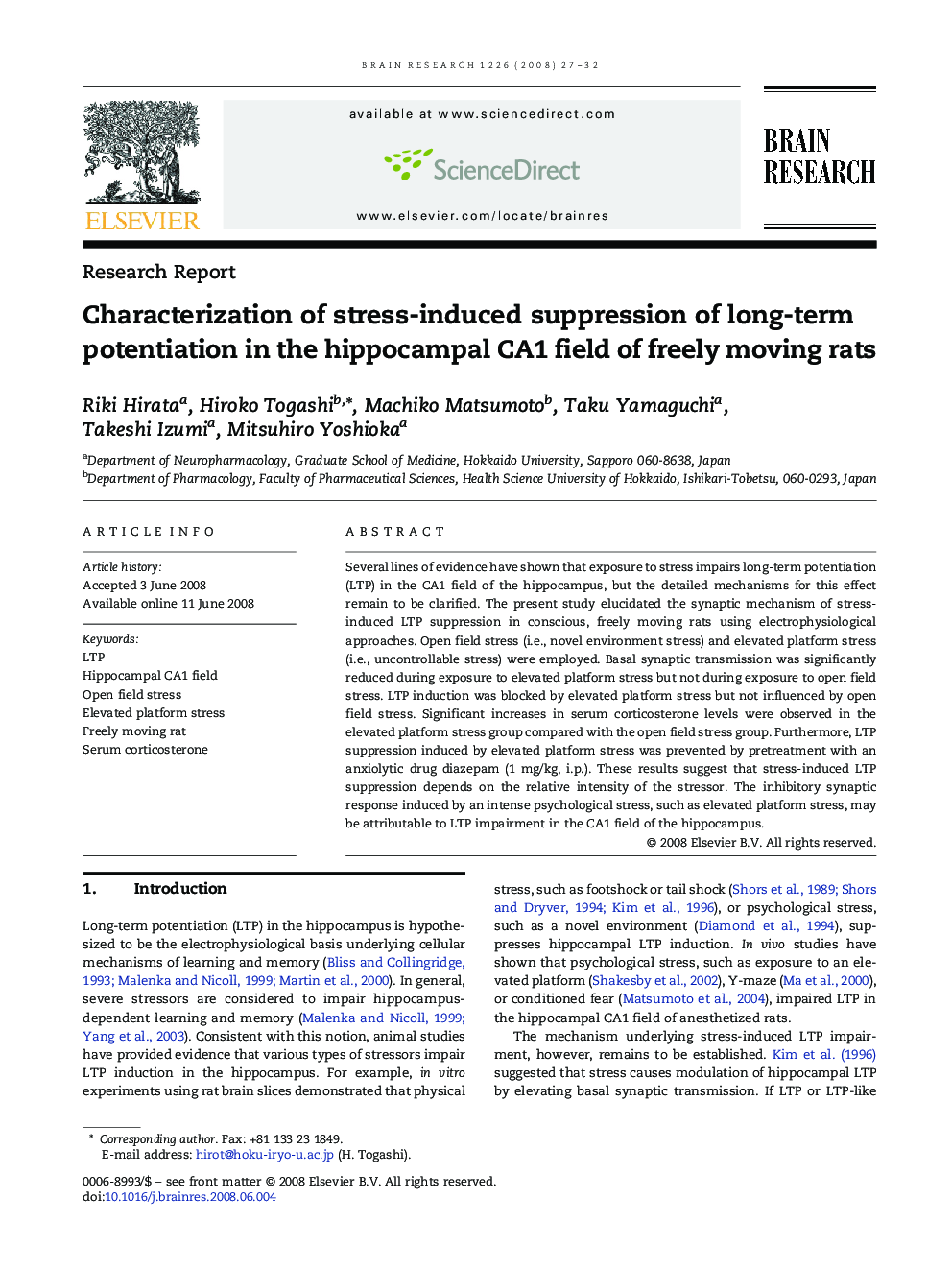| Article ID | Journal | Published Year | Pages | File Type |
|---|---|---|---|---|
| 4329387 | Brain Research | 2008 | 6 Pages |
Several lines of evidence have shown that exposure to stress impairs long-term potentiation (LTP) in the CA1 field of the hippocampus, but the detailed mechanisms for this effect remain to be clarified. The present study elucidated the synaptic mechanism of stress-induced LTP suppression in conscious, freely moving rats using electrophysiological approaches. Open field stress (i.e., novel environment stress) and elevated platform stress (i.e., uncontrollable stress) were employed. Basal synaptic transmission was significantly reduced during exposure to elevated platform stress but not during exposure to open field stress. LTP induction was blocked by elevated platform stress but not influenced by open field stress. Significant increases in serum corticosterone levels were observed in the elevated platform stress group compared with the open field stress group. Furthermore, LTP suppression induced by elevated platform stress was prevented by pretreatment with an anxiolytic drug diazepam (1 mg/kg, i.p.). These results suggest that stress-induced LTP suppression depends on the relative intensity of the stressor. The inhibitory synaptic response induced by an intense psychological stress, such as elevated platform stress, may be attributable to LTP impairment in the CA1 field of the hippocampus.
